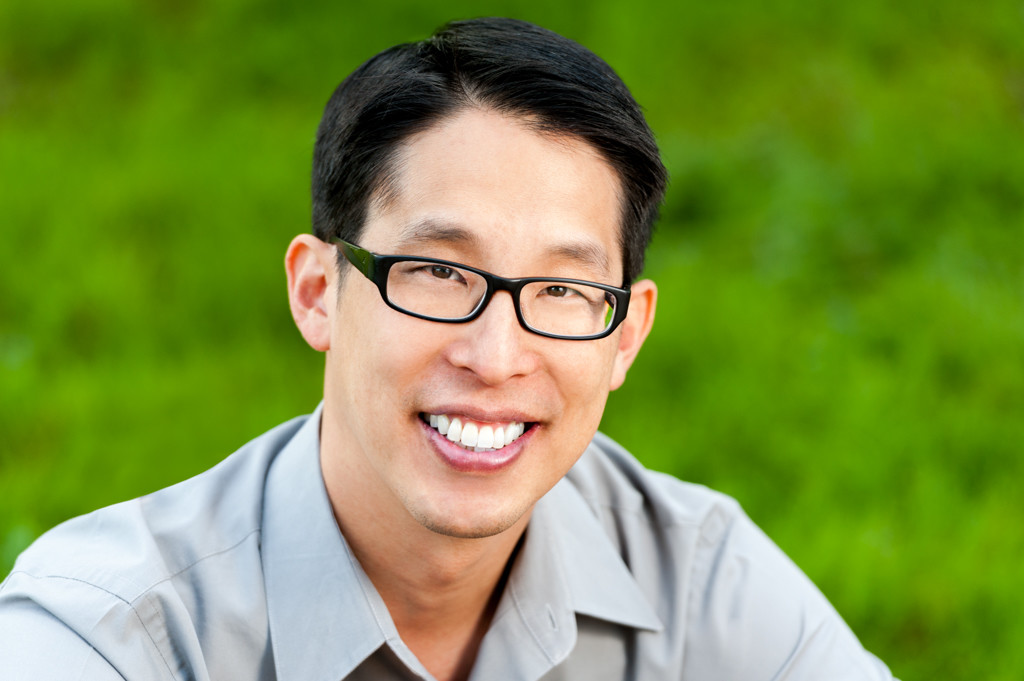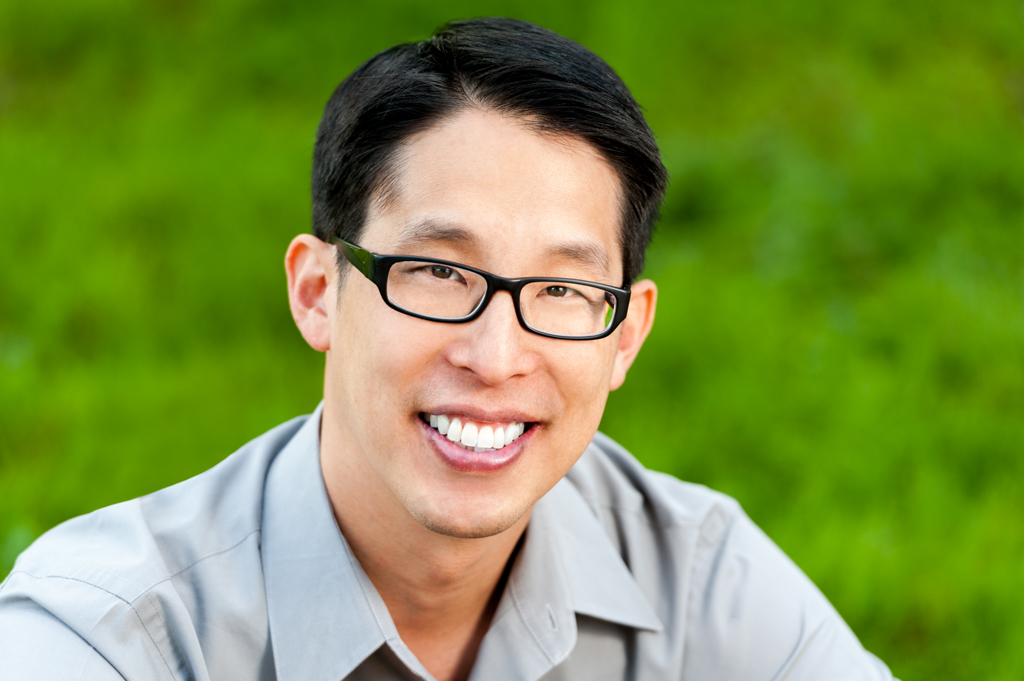Gene Luen Yang is a cartoonist and author of several books, including “Shadow Hero”, which was an Honors Title at the APALA 2014-2015 Literature Awards. He was also an invited speaker at the APALA 35th Anniversary and Symposium in San Francisco.
Molly Higgins (MH):Please introduce yourself and briefly describe your literary work and career path to date.
Gene Luen Yang (GLY): My name is Gene Luen Yang and I’m a cartoonist. I’ve been making comic books and graphic novels for about 20 years. My 2006 book “American Born Chinese” was the first graphic novel to win the American Library Association’s Michael L. Printz Award. My 2013 two-volume graphic novel “Boxers & Saints” won an L.A. Times Book Prize. I also work on licensed properties. Currently, I write Dark Horse Comics’ “Avatar: The Last Airbender” series and DC Comics’ “Superman.”
I began as a self-publisher. I used to photocopy my comics, staple them by hand and sell them through local stores and comic book conventions.

MH: Your work definitely has a strong Asian American audience because so many Asian Americans feel like it speaks to their personal experiences. Would you like to say something about the specificity and/or universality of Asian American literature?
GLY: Asian Americans constantly struggle against the perception of foreignness. No matter how perfect our English is, no matter how many generations our families have been here, we’re still seen by some as foreign. And sometimes this gets internalized – we feel like we don’t belong.
This outsider’s experience is both specifically Asian American and universal. Specific stereotypes are used to push Asian Americans out of the mainstream. At the same time, all of us, regardless of our ethnic heritage, have felt out of place at some point in our lives.
MH: I’ve heard you speak about the parallels you see between Asian American and superhero identities. Would you care to expand on that here?
GLY: Almost all the big name superheroes – Superman, Batman, Spider-Man, the Hulk – were created by the sons of Jewish immigrants. Consciously or not, these young men put their life experiences into their characters. Superheroes often have two names and live under two different sets of cultural norms. They have to hide who they truly are from the public in order to be accepted.
I wonder if this is why I was drawn to superheroes when I was a kid. I’m the son of Asian immigrants, and I saw my experiences reflected in the comic books stories I was reading. I grew up with two names, under two sets of cultural norms. I think this is true for a lot of Asian American kids.
In fact, there are a couple of graphic novel anthologies that explore this link between superheroes and Asian America. One is called “Secret Identities” and the other “Shattered.” They’re collections of stories about Asian American superheroes by Asian American creators. Sonny Liew and I have short stories in both volumes.
MH: How do you think your personal identity influences your writing and/or the diversity of your readership?
GLY: Most authors look to their own lives for their inspiration, and I’m certainly no exception. I love hearing from readers who connect with my books. I wish I could go back in time to tell my pre-teen self that what he was going through was pretty common.
I’ve been lucky enough to do talks about “American Born Chinese” all over the country. I’ve heard from readers of every background. The book seems to speak most strongly to the children of immigrants, regardless of where their parents came from. The immigrant experience is so fundamental to who we are as a nation, yet it’s often swept under the rug.
MH: We’re always looking for more to read. Who are five authors we should we be reading? Why?
GLY: Jason Shiga’s choose-your-own-adventure graphic novel “Meanwhile” is one of the most astounding books I’ve ever read. Right now, he’s working on an 500-page epic called “Demon.” It’s not for kids – it’s not even for some adults – but it’s Shiga at his best.
G. Willow Wilson is in the middle of an epic run on Ms. Marvel, the first Muslim American superhero to have her own monthly comic. It’s action-packed, funny, touching – pretty much everything you could ask for from a superhero comic.
I recently read Jay Hosler’s “The Last of the Sandwalkers.” Hosler is both a university biology professor and a world-class cartoonist. He weaves science seamlessly into his stories.
Patrick Ness’ “The Rest of Us Just Live Here” is a clever book that’s even more heartfelt than it is clever. Ness explores the outsider’s experience from multiple vantage points.
A few years ago, Bay Area cartoonist Jen Wang wrote and drew a graphic novel called “Koko Be Good.” She recently did another one with Cory Doctorow called In “Real Life.” You ought to read them both. Jen’s work is really extraordinary.
MH: You’re being interviewed by a librarian, for an audience of progressive Asian American librarians. What are your thoughts on libraries, and their place in building diverse communities?
GLY: I love libraries. I grew up in libraries. A strong library system is a cornerstone of a culture that values learning. It behooves all of us to keep information free, widely distributed, and personal. The Internet is good at the first two. Libraries are good at all three.
MH: What advice would you give young professionals, especially those from diverse backgrounds, who are interested in a career in writing?
GLY: First, structure your life so that you have time to write. Set aside time every week, maybe every day, to work on your craft. Keep that time sacred.
Second, don’t wait for the gatekeepers. It’s great to sign with a publisher, but it’s not necessary. You can get your book out there on your own, especially today. The publishing possibilities are endless. Put your book out there. Exhibit at a local convention, shake some hands, meet some like-minded individuals. You probably won’t sell a ton of books, but you’ll learn so much.
Editing assistance provided by Jeremiah Paschke-Wood.

